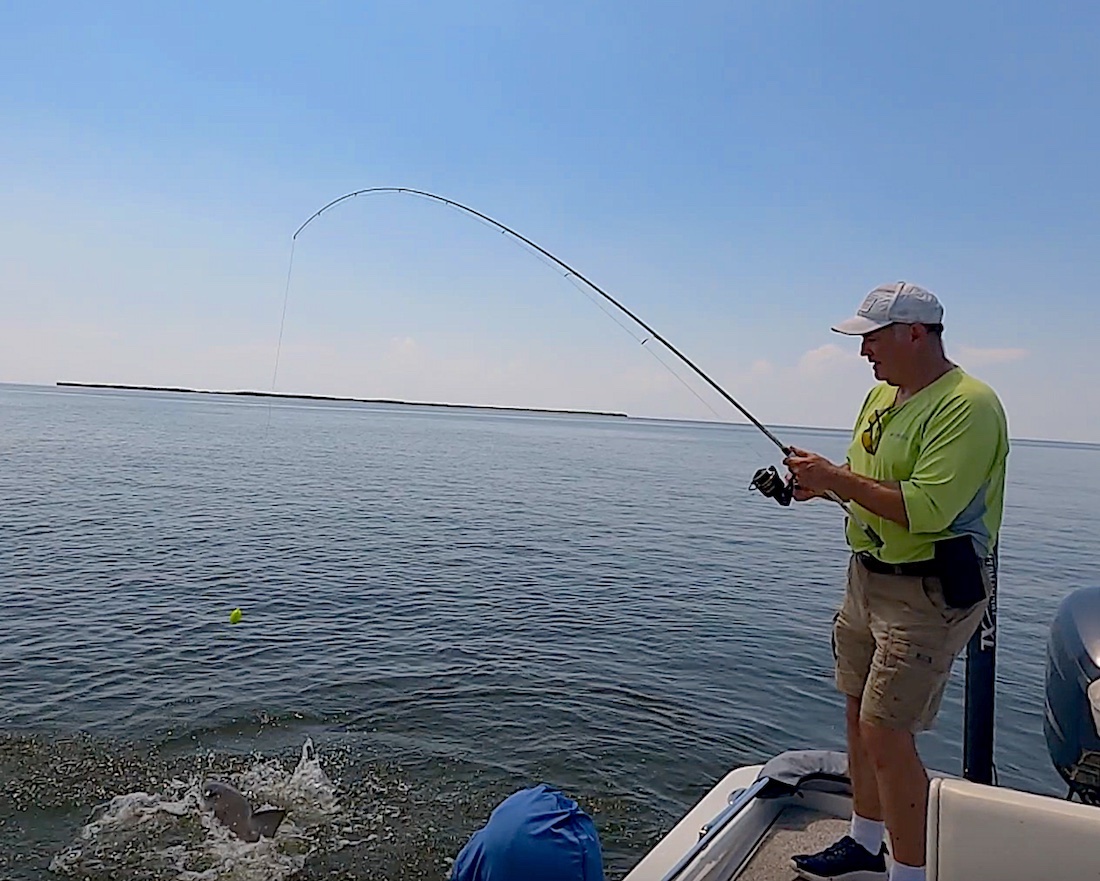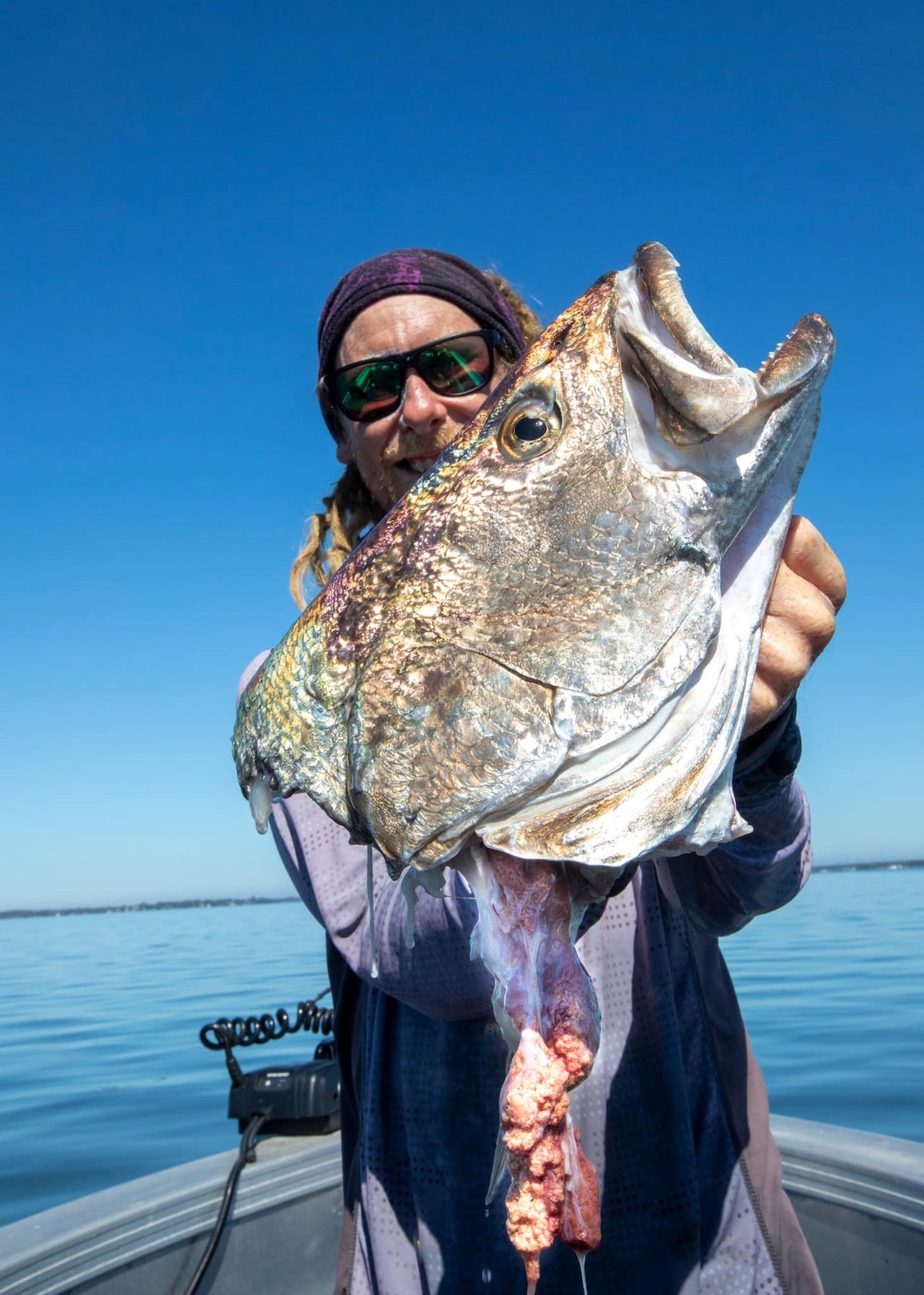
Keith Lusher 09.09.25

Living in Southeast Louisiana, I’m no stranger to both offshore fishing and inshore fishing. Like most Gulf Coast anglers, I’ve always accepted that sharks were part of the game when you’re fishing offshore. But on a recent inshore fishing trip, I witnessed something that I’ve never had to deal with in my 50 years of saltwater.
What started as a typical day targeting speckled trout quickly turned into a nightmare when sharks showed up. These weren’t the occasional offshore sharks we’re used to dealing with. These were inshore blacktips, and they were so aggressive that we were forced to abandon our fishing spot because we couldn’t keep a fish on the line long enough to get it to the boat.
I’m not alone in this experience. Recent research shows that 43% of Florida anglers are dealing with shark depredation, with rates ranging from 10% to 60% depending on where and when you fish. Captain Logan Dezan of Top to Bottom Fishing Company put it best: “A typical day of offshore fishing on our reefs, we can run through 5 to 10 weights and 10 to 30 hooks. It is not uncommon to have groups of sharks follow our fish up to the boat 3 to 4 in a pack chasing one fish.”
The numbers don’t lie. Shark depredation incidents in the Gulf of America have “substantially increased over the past decade,” according to scientists. What’s worse, the sharks have learned to associate boat engines with food. They’re coming straight for the boats now, creating direct competition between anglers and sharks for the same fish.

This isn’t just about losing a few fish anymore. Anglers are being forced to change their entire approach to fishing. Some are moving further offshore, increasing trip costs and putting a strain on for-hire operations. Others have stopped fishing altogether, creating devastating economic impacts for coastal communities that depend on recreational fishing.
The problem has gotten so bad that fishermen report having to “pay the tax man” as sharks frequently take a bite, and sometimes the entire body of a fish, before it reaches the boat. Bull sharks and sandbar sharks are the worst offenders, with snapper and grouper species being their preferred targets.

Call to Action
After years of waiting for someone to address this crisis, legislators and the fishing community are taking action. The bipartisan SHARKED Act was reintroduced in January 2025 and quickly passed the House of Representatives. The Senate version was introduced in July 2025 and is moving through the Commerce Committee.
This legislation establishes a federal task force dedicated to addressing shark depredation through coordinated research and management. It brings together federal agencies, regional fisheries councils, scientists, and stakeholders to finally tackle this problem that’s been plaguing anglers for years.
The American Sportfishing Association and 14 recreational fishing organizations are backing the SHARKED Act, recognizing it as the first meaningful step toward solving this complex issue. Their four-pillar approach focuses on Education, Management, Policy, and Research.
Key recommendations include allowing anglers to retain fish damaged by sharks, increasing harvest opportunities for healthy shark stocks that contribute to depredation, and ending shark feeding operations nationwide that teach sharks to associate humans with food.
The sportfishing industry supports $230 billion in economic activity annually. We can’t afford to let shark depredation destroy the fishing opportunities that so many coastal communities depend on. With federal legislation gaining momentum and the fishing community united behind solutions, 2025 could finally be the year we get the help we need.
But we need your help to make it happen. The SHARKED Act has passed the House, but it needs to clear the Senate to become law. If you’re tired of losing fish to sharks and want real solutions, now is the time to make your voice heard. Contact your senators and tell them to support the SHARKED Act. The future of recreational fishing depends on it!
Trending Products












